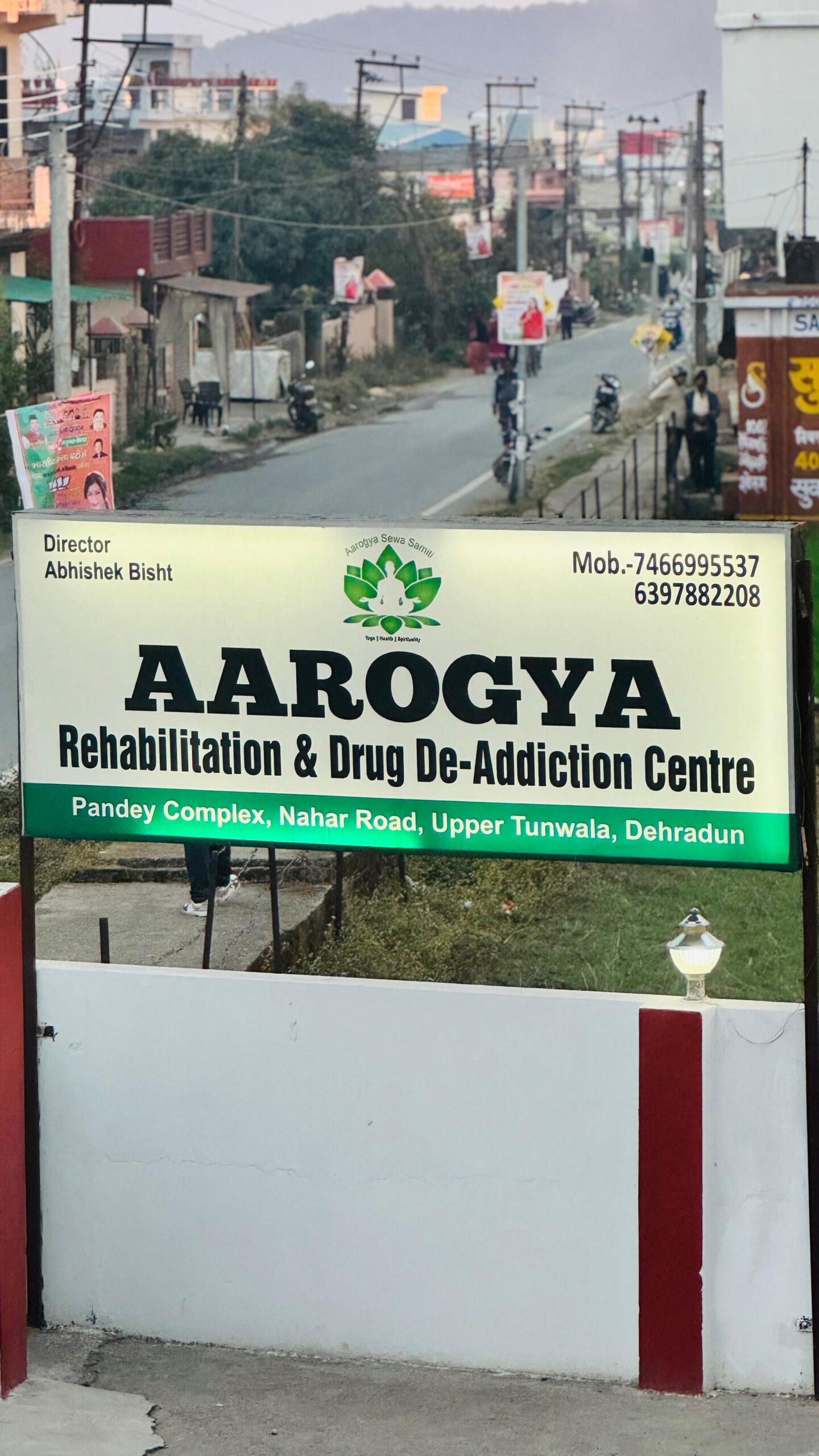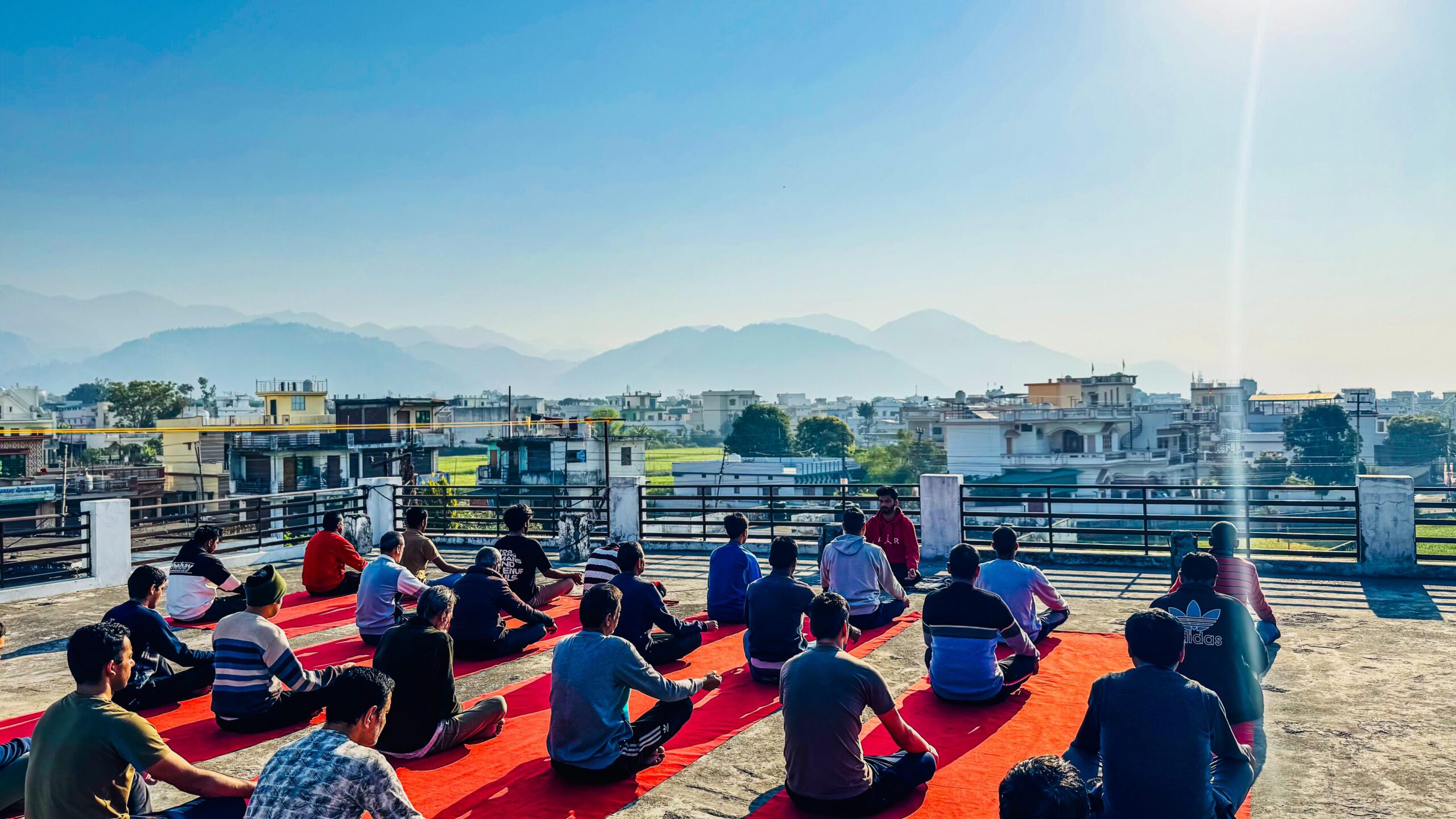Introduction
Addiction is a powerful force that can slowly take over a person’s life—hurting their health, relationships, studies, and future. But recovery is always possible. It’s not something that happens overnight; it’s a journey. This journey has several steps, which we call the stages of addiction recovery.
At Aarogya Sewa Samiti, we have seen many people move through these stages—starting from the pain of dependence to the joy of living free from drugs or alcohol. Understanding these stages can help students, families, and friends know what to expect, and how to offer support at each step.

Why Understanding the Stages of Addiction Recovery Matters
Many people think recovery is simply “stopping” the use of drugs or alcohol. But it’s much more than that. True recovery means:
-
Cleansing the body from harmful substances
-
Healing the mind and emotions
-
Building healthy habits
-
Learning to live without depending on drugs or alcohol
When you understand the stages of addiction recovery, you see that each stage builds the foundation for the next. Skipping a step or rushing the process can make relapse more likely.
Stage 1: Realising There is a Problem
The first stage in the stages of addiction recovery is self-awareness. This is when a person starts to accept that they have an addiction.
At first, most people are in denial. They may think:
-
“I can quit anytime.”
-
“I’m still in control.”
-
“It’s not affecting my life that much.”
In reality, the addiction is already affecting them. Sometimes, it takes a serious event—a health scare, trouble at school, loss of relationships—for the truth to sink in. Friends and family can help here by speaking honestly but kindly.
Stage 2: Making the Choice to Change
Once someone realises there’s a problem, the next stage is deciding to do something about it. This stage in the stages of addiction recovery is all about motivation.
Making the choice to change is a turning point. It’s when the person says, “I don’t want to live like this anymore.” This decision is powerful, but it’s just the beginning. The real work comes in the next stages.
Stage 3: Detox – Cleansing the Body
Detox, or detoxification, is one of the most challenging stages of addiction recovery. This is the process of removing all traces of drugs or alcohol from the body.
Why it’s important:
-
It breaks the body’s physical dependence on the substance.
-
It allows the brain to start functioning normally again.
Detox can cause withdrawal symptoms like headaches, nausea, sweating, anxiety, and even severe health risks. That’s why it should always be done under medical supervision. At Aarogya Sewa Samiti, our detox programs are safe, supportive, and designed to reduce discomfort.
Stage 4: Rehabilitation – Healing the Mind
After detox, the next stage in the stages of addiction recovery is rehabilitation (rehab). This stage is about mental and emotional healing.
Rehab helps a person:
-
Understand what triggers their substance use
-
Learn healthy coping strategies
-
Repair damaged relationships
-
Build self-confidence without drugs or alcohol
Rehabilitation may include individual counseling, group therapy, skill-building activities, and mindfulness practices. It’s not just about avoiding drugs—it’s about creating a new way of living.

Stage 5: Building a Support System
One of the most overlooked stages of addiction recovery is building a network of people who encourage and guide you. A support system can include:
-
Family and friends who care
-
Counsellors and mentors
-
Support groups with others in recovery
Support is crucial because recovery can be challenging. Having people who believe in you makes it easier to stay on track.
Stage 6: Returning to Everyday Life
After completing rehab, the person begins returning to normal activities like school, work, or family life. This stage of the stages of addiction recovery is exciting but also risky. Old habits or environments can trigger cravings.
To succeed in this stage, a person needs to:
-
Stick to healthy routines
-
Avoid situations linked to past substance use
-
Continue attending therapy or support meetings
Stage 7: Long-Term Maintenance
The final stage in the stages of addiction recovery is maintaining sobriety for life. This doesn’t mean the journey is over—it means the person has built a strong foundation to stay substance-free.
Maintenance includes:
-
Staying aware of triggers
-
Practicing healthy coping skills
-
Helping others in early recovery stages
-
Staying connected to supportive people
Challenges in the Stages of Addiction Recovery
Recovery is not always a straight path. Challenges may include:
-
Relapse: Returning to substance use after some time sober
-
Emotional struggles: Anxiety, depression, or loneliness
-
Peer pressure: Friends or environments that encourage drug use
The important thing is to remember that setbacks do not mean failure. Every day is a chance to begin again.
How Aarogya Sewa Samiti Supports the Stages of Addiction Recovery
We provide complete care for each stage:
-
Awareness: Counseling and family education
-
Detox: Medically supervised programs to ensure safety
-
Rehab: Personalized treatment plans
-
Aftercare: Continued support to prevent relapse
Our mission is not just to help people stop using drugs—it’s to help them build a healthy, meaningful life.
Message for Students
If you’re a student, the best way to avoid the pain of addiction is never to start. But if you or someone you know is already struggling, know that recovery is possible. Understanding the stages of addiction recovery will help you see that the journey is hard, but it’s worth it.
You might feel like addiction has taken control, but with the right help, you can take control back.
Conclusion
Recovery from addiction is not a single event—it’s a process made up of different stages, each one important. From recognising the problem to detox, rehab, and long-term maintenance, the stages of addiction recovery offer a clear path toward a better life.
At Aarogya Sewa Samiti, we’ve helped many people walk this path with compassion and care. That’s why we are proud to be trusted as the best Nasha Mukti Kendra in Dehradun , where hope and healing begin.
